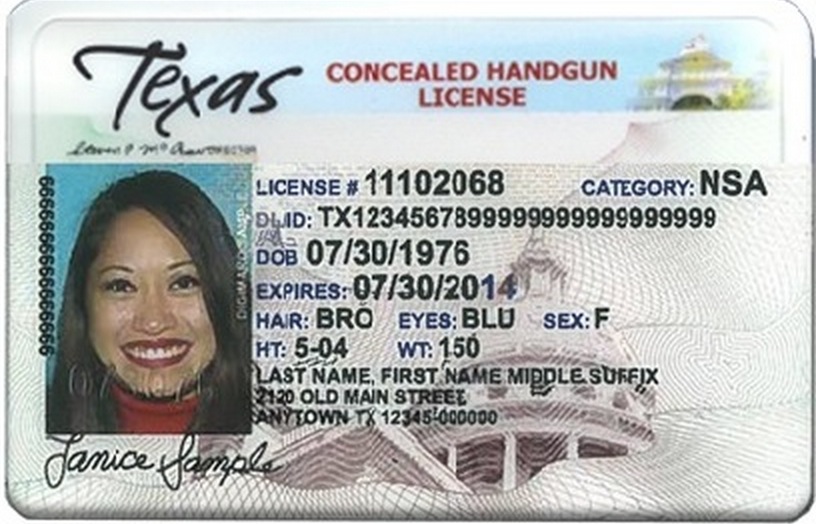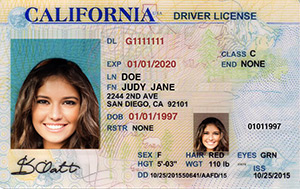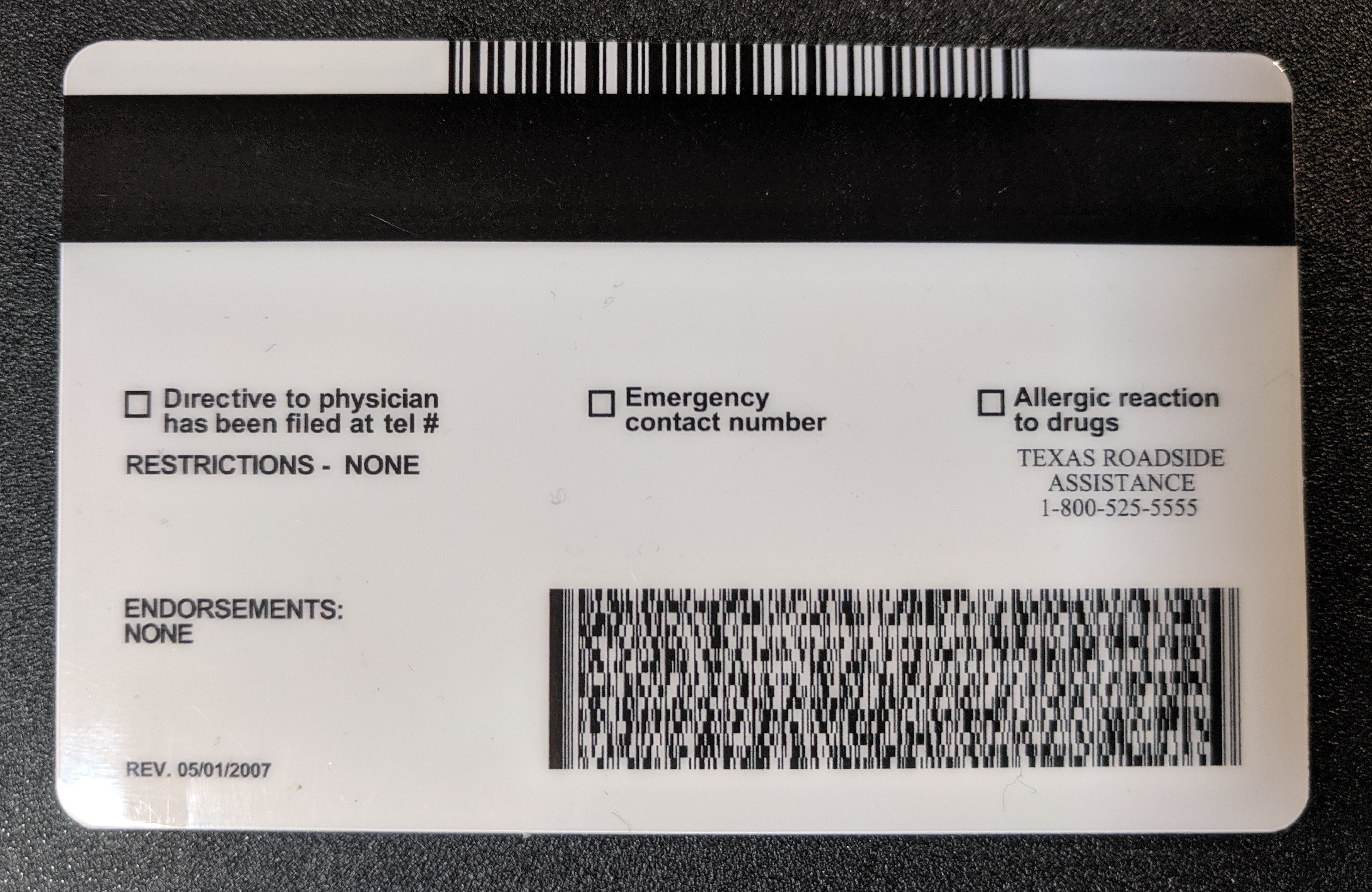
To ensure the usability of Texas.gov for site visitors with access and functional needs, we stay up to date on current accessibility practices, including Texas Administrative Code, chapters 206 and 213, and conduct testing throughout development of the website and when applying new technologies and advancements. PublicData.com is the number one resource for public records from local, state, and federal agencies. Since its creation on September 1, 1997, PublicData.com has been an industry leader in affordable access to Public Records.
| § 523.001 | Enactment |
| § 523.002 | Findings and Declaration of Policy |
| § 523.003 | Definitions |
| § 523.004 | Reports of Convictions |
| § 523.005 | Effect of Conviction |
| § 523.006 | Applications for New Licenses |
| § 523.007 | Applicability of Other Laws |
| § 523.008 | Compact Administrator and Interchange of Information and Compensation of Expenses |
| § 523.009 | Effective Date; Withdrawal From Compact |
| § 523.010 | Rulemaking Authority |
| § 523.011 | Construction and Severability |
Terms Used In Texas Transportation Code Chapter 523
- Affidavit: means a statement in writing of a fact or facts signed by the party making it, sworn to before an officer authorized to administer oaths, and officially certified to by the officer under his seal of office. See Texas Government Code 312.011
- Bail: Security given for the release of a criminal defendant or witness from legal custody (usually in the form of money) to secure his/her appearance on the day and time appointed.
- Continuance: Putting off of a hearing ot trial until a later time.
- Conviction: A judgement of guilt against a criminal defendant.
- Department of Public Safety: means the Department of Public Safety of the State of Texas. See Texas Transportation Code 1.004
- Equitable: Pertaining to civil suits in 'equity' rather than in 'law.' In English legal history, the courts of 'law' could order the payment of damages and could afford no other remedy. See damages. A separate court of 'equity' could order someone to do something or to cease to do something. See, e.g., injunction. In American jurisprudence, the federal courts have both legal and equitable power, but the distinction is still an important one. For example, a trial by jury is normally available in 'law' cases but not in 'equity' cases. Source: U.S. Courts
- Evidence: Information presented in testimony or in documents that is used to persuade the fact finder (judge or jury) to decide the case for one side or the other.
- Felony: A crime carrying a penalty of more than a year in prison.
- Fiscal year: The fiscal year is the accounting period for the government. For the federal government, this begins on October 1 and ends on September 30. The fiscal year is designated by the calendar year in which it ends; for example, fiscal year 2006 begins on October 1, 2005 and ends on September 30, 2006.
- Plea: In a criminal case, the defendant's statement pleading 'guilty' or 'not guilty' in answer to the charges, a declaration made in open court.
- Precedent: A court decision in an earlier case with facts and law similar to a dispute currently before a court. Precedent will ordinarily govern the decision of a later similar case, unless a party can show that it was wrongly decided or that it differed in some significant way.
- Presiding officer: A majority-party Senator who presides over the Senate and is charged with maintaining order and decorum, recognizing Members to speak, and interpreting the Senate's rules, practices and precedents.
- Property: means real and personal property. See Texas Government Code 311.005
- Remainder: An interest in property that takes effect in the future at a specified time or after the occurrence of some event, such as the death of a life tenant.
- Statute: A law passed by a legislature.
- United States: includes a department, bureau, or other agency of the United States of America. See Texas Government Code 311.005
- Year: means 12 consecutive months. See Texas Government Code 311.005

In the state of Texas, certain special categories of drivers can be granted endorsements by the government allowing them to perform sensitive tasks not covered by the usual license conditions. You can think of it as the opposite of a license restriction, which are handed out far more often, and single out the carriers for extra scrutiny. An endorsement from the DPS means you have been judged worthy of special privileges as a driver.
For example, under the law, the driver of a school bus is considered to be in a special category. School bus drivers are responsible for the safety of dozens of children on a daily basis, and their skills and character have to be vetted before their license is issued. Until they receive their endorsements, they’re not able to take a job in their field.

Endorsement Codes in Texas Are as Follows:
Moving To Texas Driver's License

- H: This endorsement code authorizes the driver to transport hazardous material, which requires a special training and careful attention. It’s only granted to holders of a commercial drivers license (CDL).
- N: This endorsement code authorizes the driver to operate a tank vehicle, which requires specialized training not covered by any ordinary drivers ed course. It’s only granted to CDL holders.
- P: This endorsement code authorizes the driver to operate a vehicle carrying passengers, such as a city bus. It demands training in passenger safety and large vehicle maneuvering. It’s only granted to CDL holders.
- S: This endorsement code authorizes the driver to operate a school bus, a task with high expectations from children, parents, the community, and the government. It’s only granted to CDL holders.
- T: This endorsement code authorizes the driver to tow 2 (also called double) or 3 (also called triple) trailers over a specified weight. This is the only DPS endorsement available to non-commercial drivers.
- X: This endorsement code authorizes the driver to operate a combination of hazardous material and tank vehicle, a task with unique applications to the military and industrial sectors (CDL only).
Texas Drivers License Class Code Cm
Endorsements carry the weight of law and allow you to participate in work that requires special dispensation, but they can be revoked if you violate any of the conditions. DPS-endorsed drivers are held to a higher standard, so be especially mindful of your driving habits. If you’re interested in applying for a job that asks for a drivers license endorsement, make sure you meet all the requirements before you move forward.